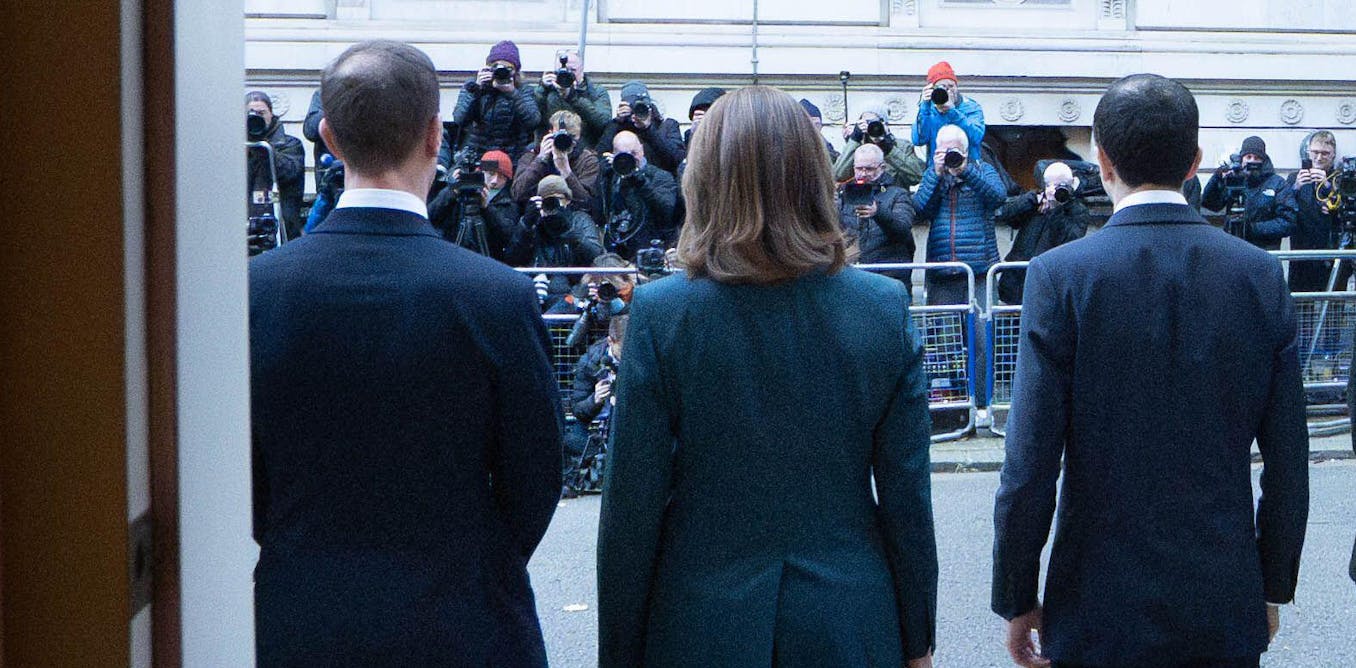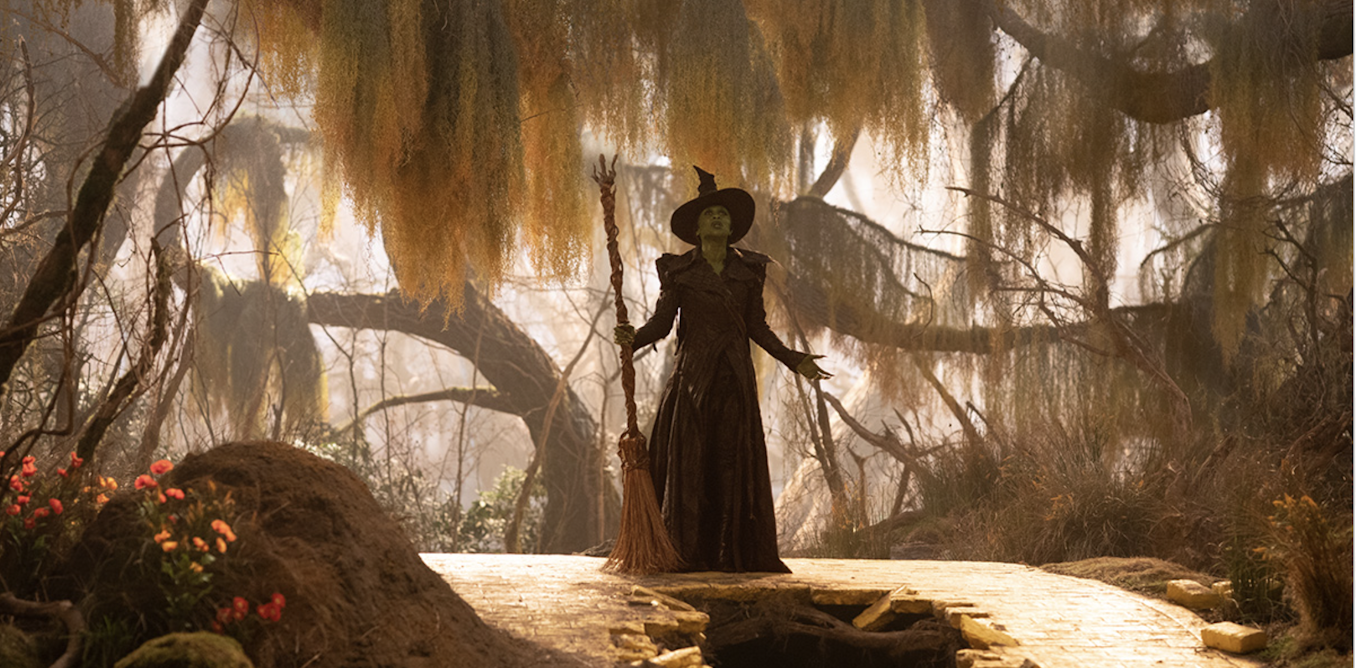Wagakki Band shocked fans earlier this year when it announced that the group will be going on hiatus indefinitely after Dec. 31, 2024. The eight-member band has forged out a singular space in J-pop music through its unique ensemble including traditional Japanese instruments and featuring the distinctive singing style of frontwoman Yuko Suzuhana. After a decade of enjoying brilliant success both in its home country and abroad, the group has summed up its career so far in a best-of collection, called ALL TIME BEST ALBUM THANKS – Yasou no Oto -.
Wagakki Band members Suzuhana, Beni Ninagawa (Tsugaru-shamisen), Kurona (wadaiko, Japanese drums), Machiya (guitar & vocals), and Wasabi (drums) sat down with Billboard Japan and spoke candidly about why they chose to take a break on their anniversary year, and the process of producing the 18-track greatest hits album that also includes re-recorded versions of familiar hits and two new songs.
The announcement that the band would be taking a break indefinitely took me by surprise when it came out in January. Could you tell us how you came to that decision?
Yuko Suzuhana: We formed Wagakki Band and made our debut in less than a year and spent an extremely busy ten years since. But at the time we first got started, all the members each had their own bands or were doing solo work. Wagakki Band suddenly attracted a lot of attention, so we stopped everything else we’d been doing until then and poured everything into this project. We’d been discussing for over a year about how it might be a good idea to stop the band for the time being and focus on our individual activities.
Beni Ninagawa: We figured we’d do our best until the end of our tenth year, then after that, we needed some time to reflect on ourselves and further improve our skills. It’s a positive decision that will allow us to get together again after we’ve improved and make even better music.
Suzuhana: The band wasn’t going downhill, so the timing of the announcement might have come as a surprise for some, but we said the hiatus would be indefinite simply because we haven’t set a time limit. This news is being inaccurately reported, especially outside of Japan, that we’re disbanding and I’ve received many inquiries from overseas.
Listening to this greatest hits album, I was touched by how it traces the history of your past ten years in a very dramatic way.
Machiya: We didn’t want to make a best-of album that just lined up our famous hits. Since it’s the tenth anniversary of our debut, we decided to re-record some of our early releases and make the collection into a retrospective of the ten years we’ve spent with our fans. It’s a pretty conceptual structure that allows you to trace our history by listening to the songs in release order.
Ninagawa: What’s more, the earlier songs that we re-recorded have a completely different sound quality compared to the original recordings, so that’s something for our fans to enjoy.
Wasabi: In particular, the original version of “Rokuchounen to Ichiya Monogatari” sounds quite light. There are parts where we should have made more solid, but it’s a fast-paced song and we weren’t able to express that at the time. But thanks to the things we’ve cultivated over the past decade, we’ve finally been able to give it shape, and I think you can feel the weight of our ten years in the sound.
After listening to the re-recorded version, I was struck by the magnitude of the wadaiko’s presence.
Kurona: Rock music can be made with just a guitar, bass and drums, so traditional Japanese instruments aren’t really necessary. But in this band, they can’t just be discreetly included; they have to become indispensable and the sounds should be there because they’re necessary. There were no precedents before Wagakki Band and we’re still the only ones that do this… We’re still in the process of trial and error.
The tracks “Rokuchounen to Ichiya Monogatari (Re-Recording)” and “Senbonzakura (Re-Recording)” were released digitally ahead of the album. My phrases and calls haven’t changed at all since (the original), but maybe because the way we recorded has changed, I’ve had people tell me that they think I’ve added more wadaiko phrases and calls. In that sense, I feel that my trials and the results of how to make Japanese instruments sound richer, including the significance of my own presence, are expressed in these re-recorded versions.
“GIFT” is a positive up-tempo new song credited to Yuko.
Suzuhana: I imagined what I’d be like, what kind of melody I’d like to be singing at the end of our tenth anniversary before the break. I came up with a positive, bright melody and tempo in a day or so, and wrote it on the piano. I named it “Gift” because this band was a gift to me. My life changed completely thanks to this band, and of course I hope that the music we eight members created will also be a gift to our fans. So this song is about how the existence of Wagakki Band has changed all of our lives for the better.
Ninagawa: Everything we want to convey is packed into this song, isn’t it?
Machiya: If you listen to this song after reading this interview, you might be able to see that our hiatus is a bit different from what those who interpreted it as a negative move thought it would be.
The other new song, “Yasou Emaki,” is credited to Wagakki Band.
Machiya: What’s different about this best-of album from previous ones is that we asked our fans which songs they wanted included. We made the selection based mainly on the top answers from the survey, but those songs are to be expected, right? Among the top 100, there were lots of tracks in the midrange that didn’t make the cut. We wanted to meet the expectations of our fans who voted for such songs, so we started working on this new track with the idea of mashing them up as much as possible. I was the one who did all the actual work, but we made it together in that it samples phrases that we all made, so we put it out under the name Wagakki Band for the first time.
I’ve forgotten how many I ended up using, but I took samples of over 80 songs. I exported all the melodies and chords in the same key, and then spent about two weeks extracting the words from them.
You’ll be touring from November to December with this album and wrapping up your decade of music for the time being. Can your fans expect the tour to be a joyful celebration?
Kurona: We know that our fans have bought tickets with some sadness and feeling of loss about our break in the corner of their minds, so we want to make sure that the shows will outlast those feelings for as long as possible. We want people who were feeling down to go home with a brighter outlook, saying things like, “I had a great time” and “I’m glad I came today.” To that end, we’ll put on an even cooler show than ever before.
“ALL TIME BEST ALBUM THANKS – Yasou no Oto -” is streaming now https://wgb.lnk.to/thanks_digital. Click here for information on tickets to “WAGAKKIBAND Japan Tour 2024 THANKS-YASO NO OTO-” Tokyo show on Dec. 10 for overseas residents https://wagakkiband.com/contents/857663.
—This interview by Tomokazu Nishibiro first appeared on Billboard Japan

The post “Wagakki Band Explains Decision to Take a Break after 10 Years, Process of Producing ‘Conceptual’ Best-Of Collection & More” by Katie Atkinson was published on 10/09/2024 by www.billboard.com





































Leave a Reply